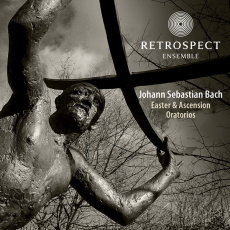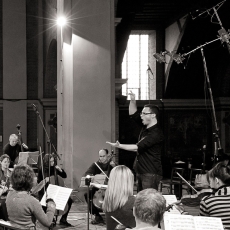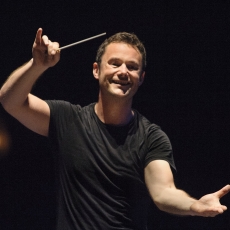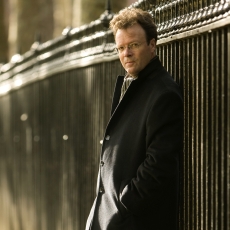Retrospect Ensemble - Bach Oratorios - Opera News
A new period-instrument ensemble from London brings verve, precision and spontaneity to a recording of J. S. Bach's Easter and Ascension Oratorios. Matthew Halls leads his eighteen-voice choir and top-notch instrumentalists in a confident, rewarding performance that never seems over-controlled or fussy.
Both works feature trumpets (Bach had some excellent players, and so does Halls), ensemble movements in exuberant triple meter and choral coloratura, nicely etched by the Retrospect singers and soloists.
Dating from 1735, the Easter Oratorio, "Kommt, eilet und laufet," was a reworking of a celebratory secular piece that continued to interest Bach, who was still tinkering with it in the final year of his life. In place of an Evangelist narrator, Peter, James, Mary Magdalen and Mary, mother of James, meet at the empty tomb of the resurrected Jesus and, in a variety of recitatives and arias, wonder, contemplate and eventually rejoice at the Savior's resurrection. Soprano Carolyn Sampson brings coziness and graceful delivery to "Seele, deine Spezerien," with its garlanding, soaring flute solo unfolding leisurely. Peter's pastoral aria, "Sanfte soll mein Todeskummer," speaks of death being but a slumber, and tenor James Gilchrist sustains the peaceful atmosphere with soothing tones of unforced beauty. The two Marys join in an inventive double recitative and arioso-duet leading into the brisk alto aria "Saget mir geschwinde," in which countertenor Iestyn Davies represents the Magdalene urgently seeking Jesus with nimble diction and natural ease.
With its festive opening movement using syncopations and scale patterns to generative excitement, "Lobet Gott in seinem Reichen" is the perfect companion piece. In celebration of Jesus's ascension, a traditional tenor narrator moves the action along, while the aria singers express distress at their beloved savior's departure and long for reunion. Bass Peter Harvey's expressive recitative sets the stage for the moving alto aria "Ach, bleibe doch" (more familiar in its later garb as the Agnus Dei from the Mass in B Minor), delivered by Davies with sensitive phrasing and smooth, resonant vocalism. Davies continues to prove himself one of the most interesting, versatile and polished countertenors before the public. Traditional chorales make their appearance, both unadorned ("Nun lieget alles unter dir") and in a splendid polyphonic concertante finale ("Wenn soll es doch geschehen"), in which syncopations again drive the energy forward.
More, please, from this exciting new ensemble.






